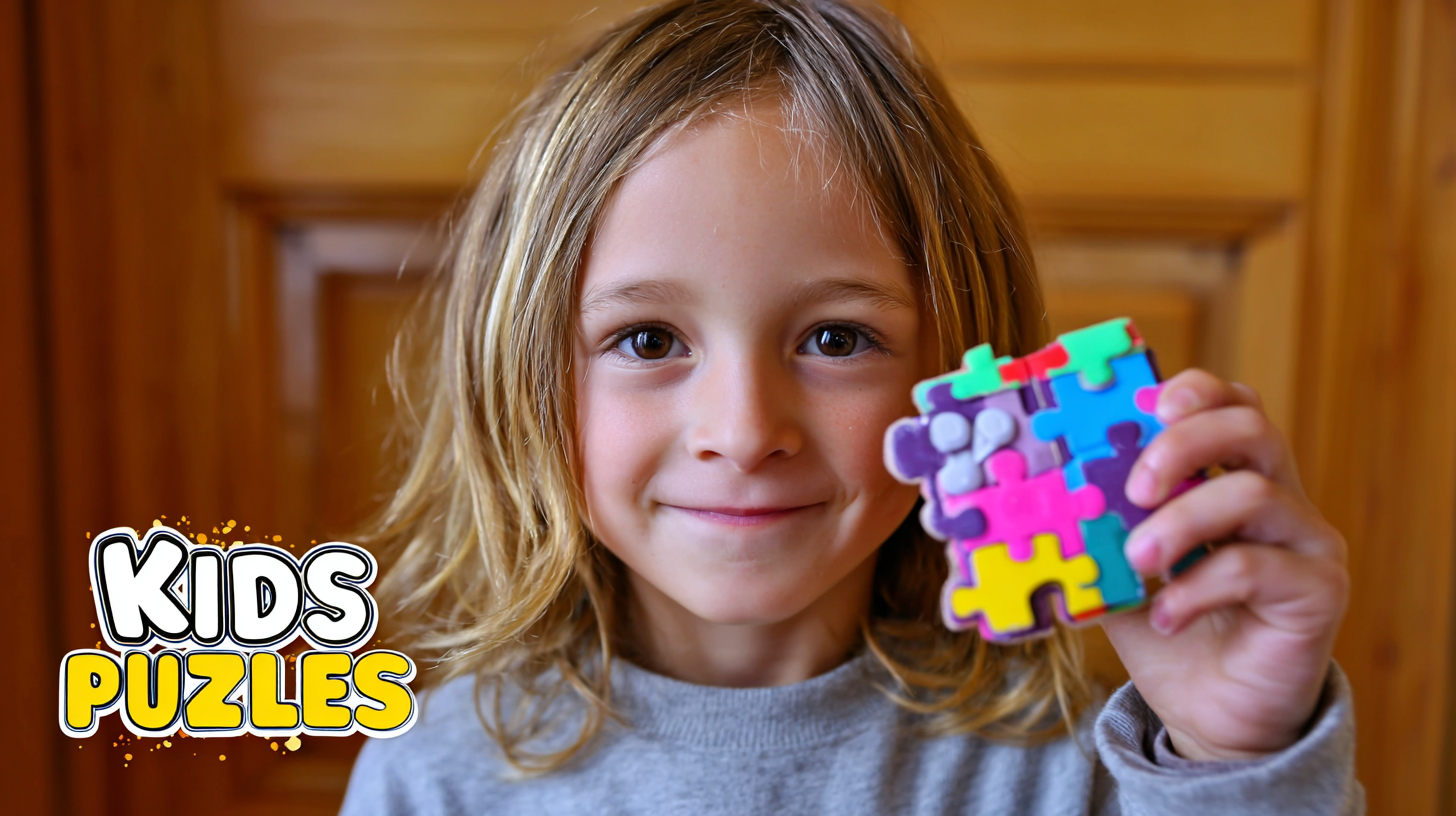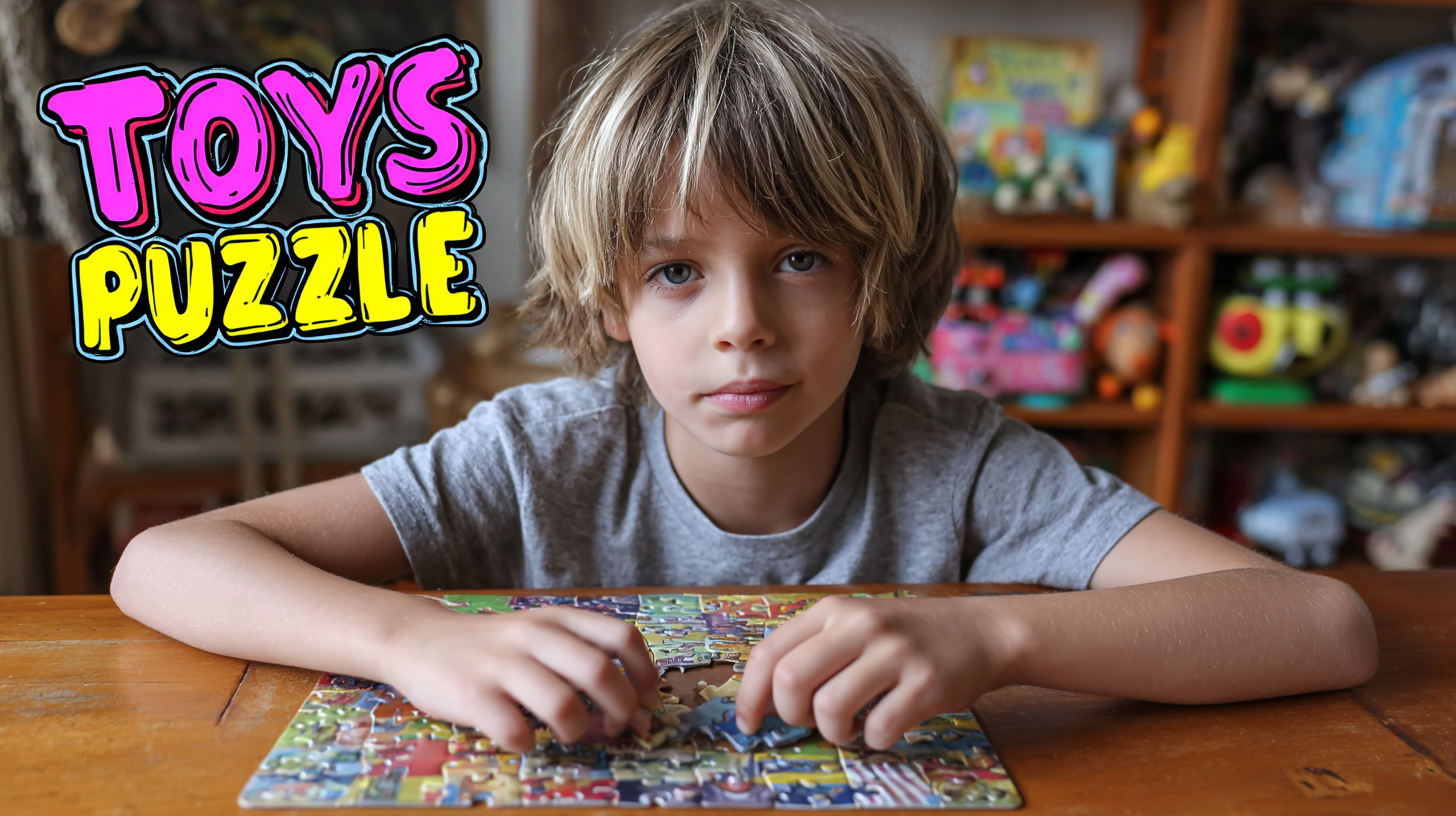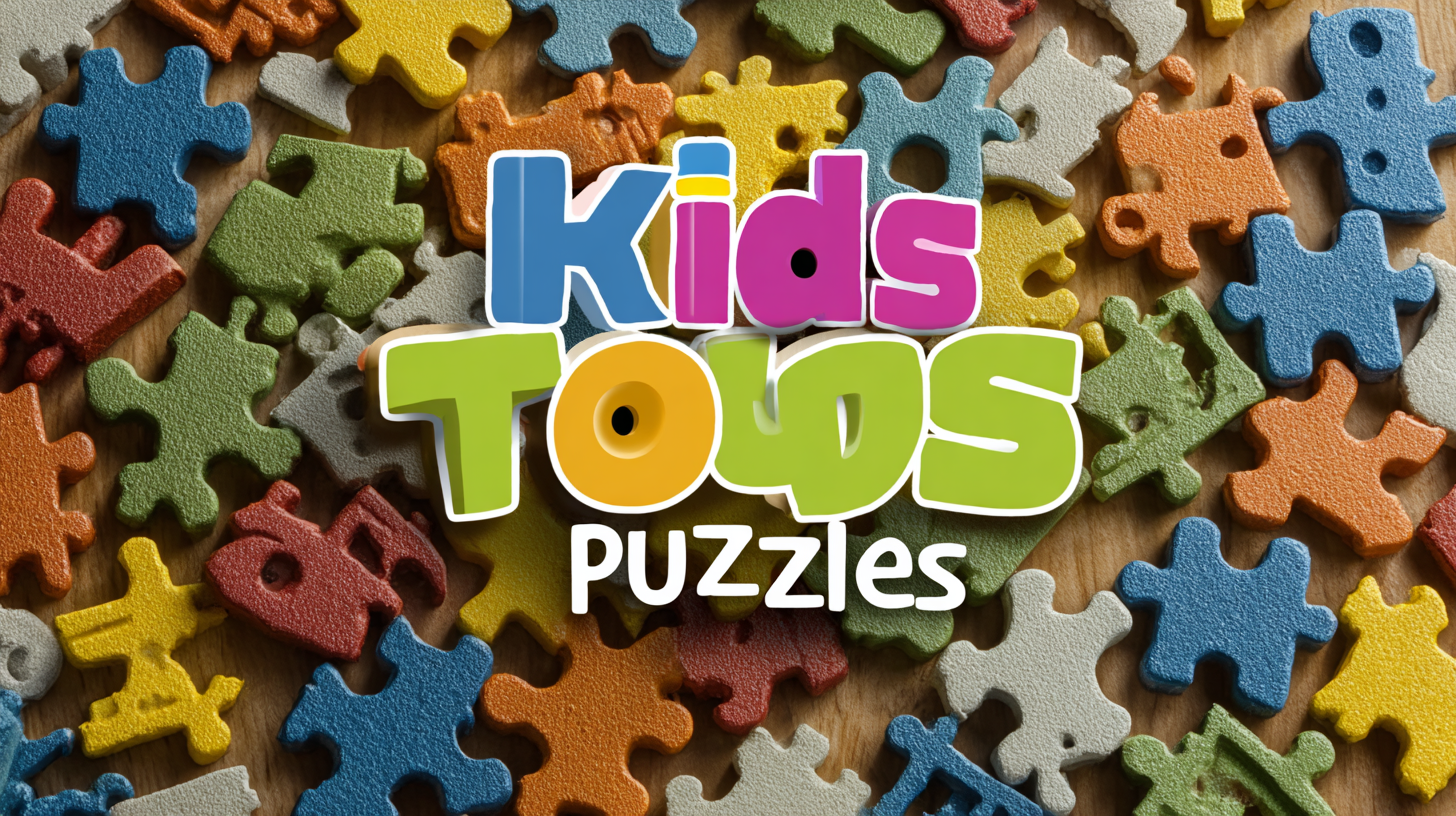Unlocking Creativity and Learning with the Best Kids Toys Puzzle Benefits
In today's rapidly evolving educational landscape, the importance of hands-on learning experiences is recognized by educators and parents alike. A key approach to fostering creative thinking and cognitive development in children is through engaging with Kids Toys Puzzle. According to the Toy Association, the global toy industry is projected to reach $120 billion by 2023, with puzzles being one of the top categories driving this growth.
Research indicates that puzzles not only improve problem-solving skills but also enhance spatial awareness, fine motor skills, and patience among young learners. As children manipulate pieces to create a cohesive image, they are not only entertained but also nurtured in their cognitive journey. With China's premium manufacturing capabilities at the forefront, this blog explores how quality Kids Toys Puzzle can serve as an indispensable tool in unlocking creativity and learning for children around the world.
Benefits of Puzzle Toys: Enhancing Problem-Solving Skills in Children
Puzzle toys play a pivotal role in enhancing problem-solving skills in children. As highlighted in recent studies, such as "Beyond Play," multi-sensory toys, including puzzles, significantly increase children's attraction and interest, leading to improved learning efficiency. With a projected market growth in the smart toy sector expected to reach USD 77.8 billion by 2033, it’s evident that parents are increasingly recognizing the benefits of educational toys in their children's development.

According to reports, the K-12 instructive toy market is anticipated to hit around USD 173.70 billion by 2034, underscoring the importance of toys that stimulate cognitive growth. Specifically, puzzles not only foster problem-solving abilities but also instill a sense of accomplishment once completed. In fact, a recent analysis has identified various puzzles as essential tools that aid in developing spatial reasoning and critical thinking skills. As the market for STEM toys continues to grow, reaching an estimated USD 13.1 billion by 2032, puzzle toys remain a quintessential element in laying the foundation for children's future learning and resilience.
How Puzzles Foster Cognitive Development: Insights from Child Psychologists
Puzzles are not just a source of entertainment; they play a crucial role in fostering cognitive development in children. According to child psychologists, engaging with puzzles can enhance problem-solving skills, improve memory, and boost spatial awareness. When children manipulate pieces to fit them together, they are not only honing their fine motor skills but also learning to think critically. This hands-on experience promotes neural connections that are vital for overall cognitive development.
Incorporating puzzles into playtime can be incredibly beneficial. Tip 1: Choose age-appropriate puzzles to ensure that children are challenged but not frustrated. Start with larger pieces for younger children, gradually introducing more complex designs as their skills improve. Tip 2: Encourage teamwork by solving puzzles as a family. This collaborative approach fosters social skills and communication while reinforcing the importance of patience and perseverance.
Moreover, varying the types of puzzles can stimulate different areas of cognitive growth. Tip 3: Introduce jigsaw puzzles alongside logic or math-related puzzles to diversify their learning experience. This variety not only keeps children engaged but also broadens their skill set, preparing them for more advanced challenges in the future.
The Role of Puzzles in Improving Fine Motor Skills: A Statistical Overview
Puzzles are not just entertaining toys; they play a pivotal role in enhancing children's fine motor skills and cognitive development. According to recent industry analyses, the educational toys market continues to grow, with puzzles representing a significant segment due to their multifunctional benefits. Research indicates that engaging with puzzles requires children to use their hands and fingers to manipulate pieces, which directly contributes to the development of fine motor skills. This hands-on experience is essential in helping young learners achieve better hand-eye coordination and dexterity, foundational skills for later activities such as writing and drawing.
Moreover, a review of the evidence highlights that play, particularly with puzzles, is vital in children's developmental trajectory. Statistically, children who regularly engage with puzzles show a marked improvement in problem-solving abilities and spatial reasoning skills. Studies suggest that children who play with puzzles can identify patterns and shapes at a much greater rate compared to those who do not. Investing in puzzles, therefore, not only promotes play but also ensures that children are gaining essential skills that will benefit their educational journey and overall growth.
Unlocking Creativity: The Psychological Benefits of Puzzle Play for Kids
Puzzle play is more than just a fun activity for children; it serves as a powerful tool for unlocking creativity and enhancing cognitive skills. When kids engage with puzzles, they are not only entertained but are also developing critical thinking and problem-solving abilities. As they strive to fit pieces together, children learn the value of perseverance and patience. This interactive process stimulates their imagination, encouraging them to visualize and brainstorm strategies for overcoming challenges, thereby boosting their creativity.
Moreover, the psychological benefits of puzzle play extend beyond cognitive development. As children navigate through various pieces and shapes, they experience a sense of accomplishment and confidence with each puzzle they complete. This can lead to improved self-esteem as they recognize their ability to tackle difficult tasks independently. Additionally, working on puzzles often fosters collaboration and social interaction when kids team up to solve them, enhancing their communication skills and emotional intelligence. By investing time in puzzle play, parents can actively support their child's mind development while also providing a platform for them to express their creativity.
Engaging Kids with Puzzles: Key Statistics on Focus and Attention Improvement
Puzzles are more than just entertaining toys; they play a crucial role in enhancing focus and attention among children. Various studies reveal that engaging with puzzles can significantly improve a child's concentration levels. When children work on puzzles, they are required to concentrate on the task at hand, which fosters sustained attention. This hands-on activity encourages them to think critically and develop problem-solving skills, thereby creating an environment conducive to learning.
Moreover, puzzles can help in honing fine motor skills and hand-eye coordination. The act of picking up pieces and fitting them together not only keeps children physically engaged but also mentally stimulated. Statistics show that kids who regularly engage in puzzle activities tend to have better cognitive skills and improved memory. As they navigate through challenges in puzzles, children learn persistence and patience, essential traits that contribute to their overall development and academic success. Engaging kids with puzzles ultimately opens the door to creativity, turning playtime into an enriching learning experience.





